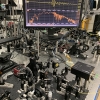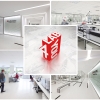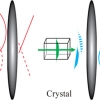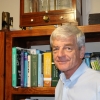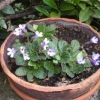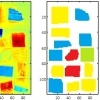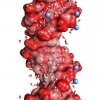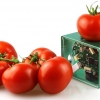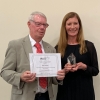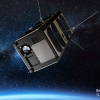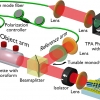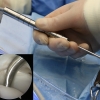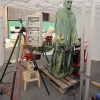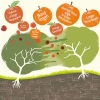News
Infrared Spectroscopy News
Researchers at the National Institute of Standards and Technology (NIST) and collaborators have demonstrated a compact frequency-comb apparatus that rapidly measures the entire infrared wavelength region.
Young scientists can apply for laboratory bench space for their own research in “Shimadzu Laboratory World”.
Danish researchers have developed a high-resolution imaging method that can capture mid-infrared spectral images on the order of milliseconds.
The winner of the 2019 Tomas Hirschfeld Award is José Manuel Amigo Rubio. José obtained his PhD (Cum Laude) in Chemistry from the Autonomous University of Barcelona, Spain. Since 2007, he has been employed at the Department of Food Science of the University of Copenhagen, Denmark, and also as Guest Professor of the Federal University of Pernambuco, Brazil, since 2017. José’s research interests include NIR hyperspectral and multispectral image analysis in different research fields including food production, pharmaceutical research, forensic sciences.
The ABS Trust is seeking applications for the Gordon F. Kirkbright bursary award and the new Edward Steers bursary, both open to early career scientists.
A small group of plants known as “resurrection plants” can survive months or even years without water. NIR spectroscopy and aquaphotomics have made a significant step forward in understanding how they do it.
Plastics recycling is complicated by the need to recycle similar plastics together. The presence of flame retardants in plastics also needs to be identified, and NIR hyperspectral imaging can do this.
A range of components for miniaturised mid-IR gas sensors from source to detector have been developed by the Horizon 2020 project MIREGAS.
Pairs of negatively charged phosphate groups and positive magnesium ions represent a key structural feature of DNA and RNA embedded in water. Vibrations of phosphate groups via 2D-IR spectroscopy have now been established as selective probes of such contact pairs and allow for a mapping of interactions and structure on the ultrafast time scales of molecular dynamics.
A miniature food scanner based on NIR spectroscopy will allow consumers and supermarket operators to determine the ripeness and shelf life of produce and display the results via an app.
The NeoSpectra-Micro chip-scale, near infrared spectral sensor has been customised for use in Henkel Beauty Care’s Schwarzkopf Professional SalonLab Smart Analyzer for hairdressers.
At the IRDG Christmas Meeting held at University College London, the 2018 Norman Sheppard Award of the UK’s IRDG was presented to John Chalmers.
A Finnish nanosatellite has now reached space equipped with the world’s smallest infrared hyperspectral camera and returned its first images.
BASF hopes that an infrared sensor developed by a spin-off company will be integrated into smartphones by 2022 and provide NIR analysis of food by consumers.
“Ghost” spectroscopy reveals no ghosts, but is real-world spectroscopy with classical correlated photons in the spirit of quantum sensing.
The winner of this award from the UK’s Infrared and Raman Discussion Group is John Chalmers, who was Article Editor for Spectroscopy Europe for many years.
An arthroscopic near infrared spectroscopic probe for evaluation of articular cartilage and subchondral bone structure and composition could improve early detection of cartilage lesions.
Outdoor bronze statues suffer from corrosion by the urban atmosphere. Short wavelength infrared hyperspectral imaging can determine the spatial distribution of corrosion products on the statue, none of which can be recognised by visual observation.
Machine learning techniques using a combination of the layer clustering and decision tree methods aids prediction of spectra.

